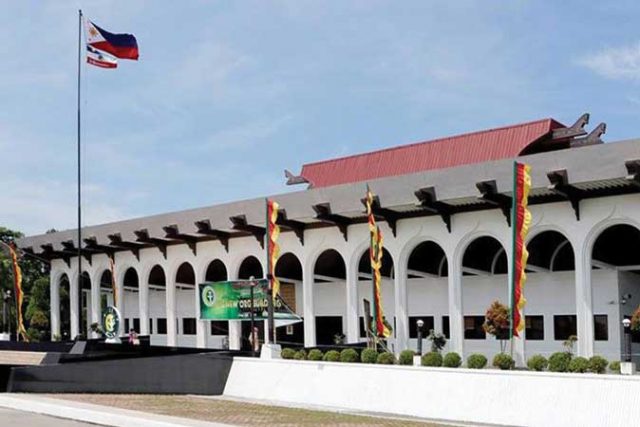BARMM not required to comply with devolution rules, DBM says

THE Bangsamoro Autonomous Region in Muslim Mindanao (BARMM) is not required to comply with the National Government’s devolution of functions to local governments to prevent disrupting the region’s transition phase, the Department of Budget and Management (DBM) said.
Local government units (LGUs) of the Bangsamoro government are not required to follow Executive Order (EO) No. 138, which will transfer some functions of the National Government to LGUs in exchange for a larger share of National Government revenue following the Supreme Court’s (SC) Mandanas ruling, according to Rowena M. Marte, supervising budget and management specialist at the DBM.
“Our stance on the application of the EO is that it is not mandatory on (BARMM’S) part to comply with EO and since the EO will not apply for the implementation of the same will not affect the BARMM government and its devolution of functions to its constituent LGUs,” Ms. Marte said at a forum organized by the Institute for Autonomy and Governance (IAG) on Thursday.
President Rodrigo R. Duterte issued EO 138 early this month to fully devolve certain functions of the National Government to LGUs by the end of 2024. Agencies and LGUs are required to prepare their own devolution transition plans within four months to clarify the division of labor between national and local entities, and set a timetable for devolution.
“We considered to not include the BARMM in the devolution efforts because of two reasons: first, the BARMM is in a period of transition, and the devolution efforts being done by the National Government might in a way disrupt its process and second, the BARMM government will be promulgating its own local government code,” Ms. Marte added.
She said the decision was also in line with the Bangsamoro government’s position that the devolution should not weaken its powers under the Bangsamoro Organic Law.
The DBM estimated that LGUs, including those in the BARMM, will receive P959 billion in Internal Revenue Allotment funds next year, with P326.1 billion going to municipalities, P220.58 billion to cities and provinces; and P191.8 billion to barangays.
LGUs are required to allot at least 20% of their national tax allotments (NTAs) for development projects.
The SC’s ruling on the petition by Batangas Governor and former Representative Hermilando I. Mandanas increased the LGU share of national taxes by including Customs collections in the pool of funds.
The government responded to the ruling by devolving more functions to LGUs starting next year, to compensate for the lost revenue.
The World Bank warned that bigger NTAs for local governments may result in greater underspending if the limited capacity of LGUs to implement projects is not improved.
Unequal fiscal allocations among LGUs will also likely persist despite the increased budgets, because the Mandanas ruling does not address the distribution formula for allocations to high- and low-income LGUs. — Beatrice M. Laforga
